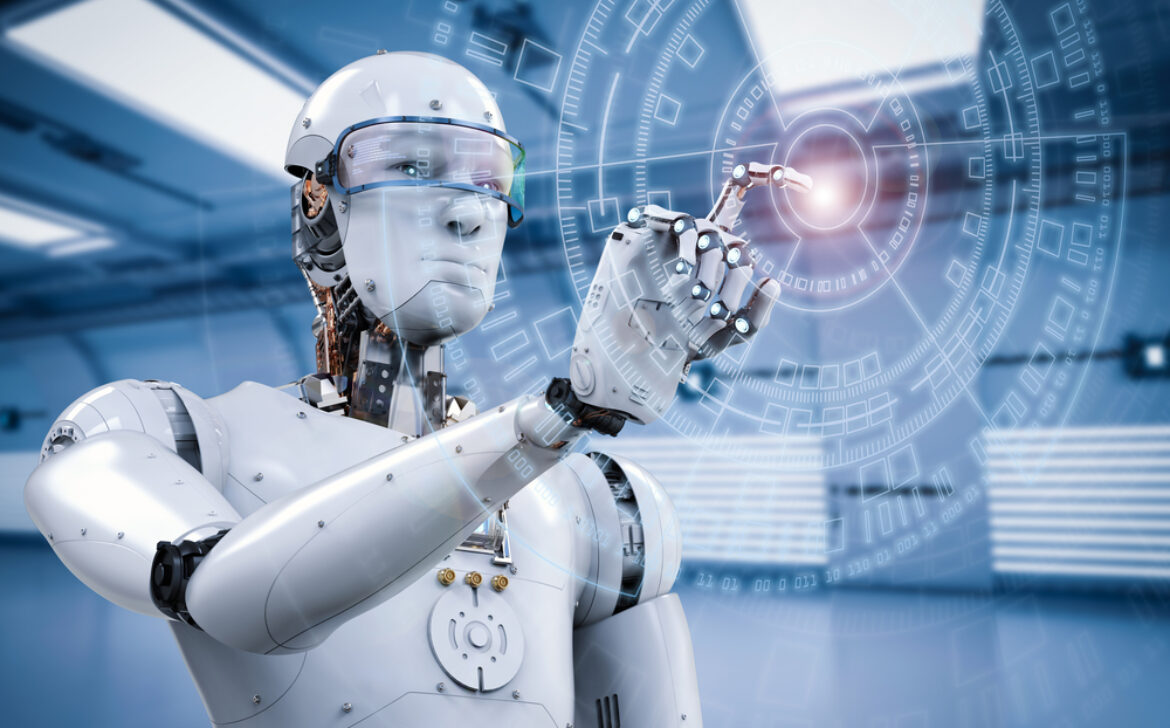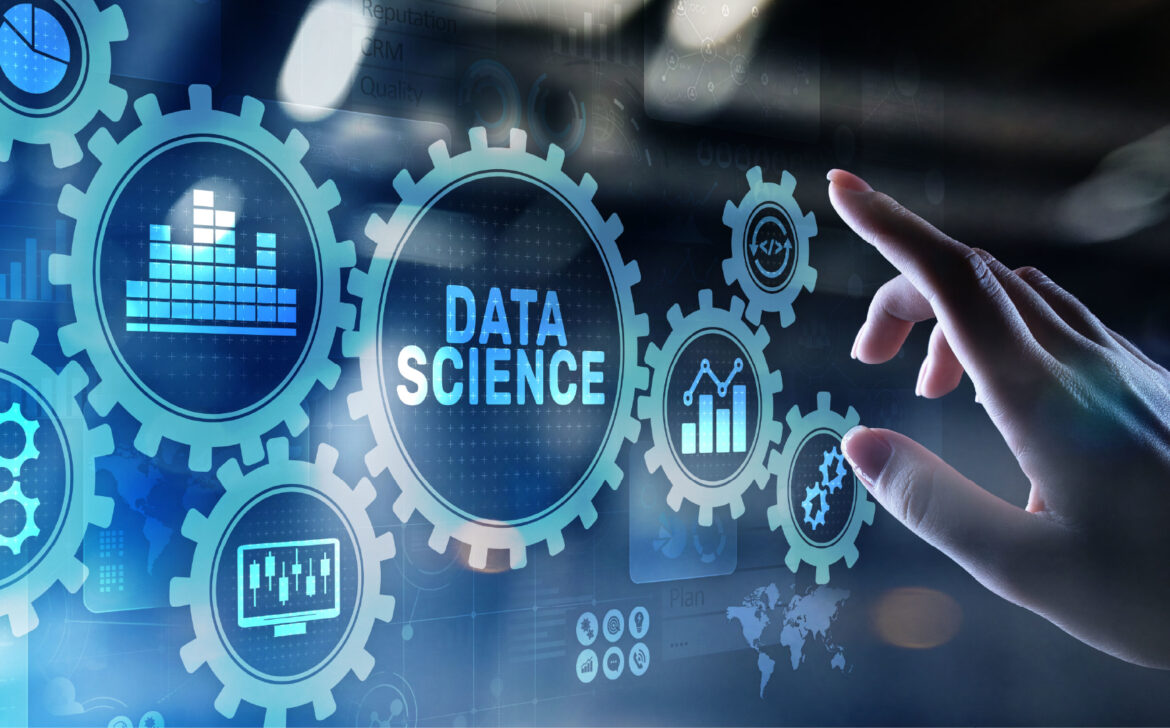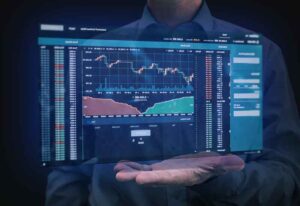Complete Guide to India’s Schedule at Paris 2024 Olympics
As the world gears up for the Paris 2024 Olympics, Indian sports enthusiasts are eagerly looking forward to the events. Here’s a comprehensive guide to India’s schedule at the Paris 2024 Olympics, including key dates and times in IST.
Important Dates to Remember
- Opening Ceremony: 26th July 2024, 11:30 pm IST
- Closing Ceremony: 11th August 2024
India’s Key Events Schedule
25th July, Thursday
- Archery: Men’s & Women’s Recurve Ranking Round | 2:30 pm onwards
- Rowing: Men’s Single Sculls Heats (Arjun Lal Jat) | 2:30 pm onwards
26th July, Friday
- Hockey: Women’s Group A | India vs. Germany | 6 pm
- Shooting: 10m Air Rifle Men’s Qualification (Divyansh Singh Panwar, Rudrankksh Patil) | 1 pm onwards
- Boxing: Men’s 57kg Round of 32 (Subject to qualification) | 7:30 pm onwards
27th July, Saturday
- Badminton:
- Men’s Singles (H S Prannoy, Lakshya Sen) | 12 pm onwards
- Women’s Singles (P V Sindhu) | 12 pm onwards
- Men’s Doubles (Satwiksairaj Rankireddy, Chirag Shetty) | 12 pm onwards
- Shooting:
- 10m Air Rifle Men’s Final (Subject to qualification) | 5:30 pm onwards
- 10m Air Pistol Women’s Qualification (Manu Bhaker, Yashaswini Singh Deswal) | 1 pm onwards
- 10m Air Pistol Women’s Final (Subject to qualification) | 6 pm onwards
- Table Tennis: Men’s Singles (Sharath Kamal, Harmeet Desai) & Women’s Singles (Manika Batra, Sreeja Akula) Round of 64 | 1:30 pm onwards
- Rowing: Men’s Single Sculls Quarterfinals (Subject to qualification) | 1 pm onwards
- Boxing: Women’s 54kg Round of 32 (Subject to qualification) | 2:30 pm onwards
- Tennis: Men’s Singles 1st round & Men’s Doubles 1st round matches | 3:30 pm onwards
- Boxing: Women’s 50kg Round of 32 (Subject to qualification) | 6:10 pm onwards
28th July, Sunday
- Badminton: Same as 27th July | 12 pm onwards
- Shooting:
- 10m Air Rifle Women’s Qualification (Elavenil Valarivan, Apurvi Chandela) | 1 pm onwards
- 10m Air Rifle Women’s Final (Subject to qualification) | 5:30 pm onwards
- Table Tennis: Men’s Singles (Sharath Kamal, Harmeet Desai) & Women’s Singles (Manika Batra, Sreeja Akula) Round of 32 | 1:30 pm onwards
- Rowing: Men’s Single Sculls Semifinals (Subject to qualification) | 1 pm onwards
- Boxing: Women’s 57kg Round of 32 (Subject to qualification) | 2:30 pm onwards
- Tennis: Men’s Singles 2nd round & Men’s Doubles 2nd round matches (Subject to qualification) | 3:30 pm onwards
- Boxing: Women’s 60kg Round of 32 (Subject to qualification) | 6:10 pm onwards
Swimming | Men’s 100m Backstroke Heats (Srihari Nataraj) | 2:30pm onwards
Swimming | Women’s 200m Freestyle Heats (Dhinidhi Desinghu) | 2:30pm onwards
Shooting | 10m Air Rifle Men’s Qualification (Sandeep Singh, Arjun Babuta) | 2:45pm onwards
Boxing | Men’s 71kg (Nishant Dev) Round of 32 | 3:02pm onwards
Shooting | 10m Air Pistol Women’s Final (Subject to qualification) | 3:30pm onwards
Tennis | 1st round matches | Men’s Singles (Sumit Nagal), Men’s Doubles (Rohan Bopanna and N. Sriram Balaji) | 3:30pm onwards
Boxing | Women’s 50kg (Nikhat Zareen) Round of 32 | 4:06pm onwards
Archery | Women’s Team Quarterfinals (Subject to qualification) | 5:45pm onwards
Archery | Women’s Team Semifinals (Subject to qualification) | 7:17pm onwards
Archery | Women’s Team Bronze Medal Match (Subject to qualification) | 8:18pm onwards
Archery | Women’s Team Gold Medal Match (Subject to qualification) | 8:41pm onwards
Swimming | Men’s 100m Backstroke Semifinals (Subject to qualification) | 1:02am onwards
Swimming | Women’s 200m Freestyle Semifinals (Subject to qualification) | 1:20am onwards
29th July, Monday
Badminton | Men’s Singles Group Stage (H S Prannoy, Lakshya Sen), Women’s Singles Group Stage (P V Sindhu), Men’s Doubles Group Stage (Satwiksairaj Rankireddy and Chirag Shetty), Women’s Doubles Group Stage (Tanisha Crasto and Ashwini Ponnappa) | 12pm onwards
Shooting | Trap Men’s Qualification (Prithviraj Tondaiman) | 12:30pm onwards
Shooting | 10m Air Pistol Mixed Team Qualification (Sarabjot Singh, Arjun Cheema, Manu Bhaker, Rhythm Sangwan) | 12:45pm onwards
Shooting | 10m Air Rifle Women’s Final (Subject to qualification) | 1pm onwards
Archery | Men’s Team Round of 16 (B. Dhiraj, Tarundeep Rai, Pravin Jadhav) | 1pm onwards
Rowing | Men’s Single Sculls Semifinals E/F | 1pm onwards
Table Tennis | Men’s Singles (Sharath Kamal, Harmeet Desai) & Women’s Singles (Manika Batra, Sreeja Akula) Round of 64 & 32 | 1:30 pm onwards
Shooting | 10m Air Rifle Men’s Final (Subject to qualification) | 3:30pm onwards
Tennis | 2nd round matches (Subject to qualification) | 3:30pm onwards
Hockey | Men’s Group B | India v Argentina | 4:15pm
Archery | Men’s Team Quarterfinals (Subject to qualification) | 5:45pm onwards
Archery | Men’s Team Semifinals (Subject to qualification) | 7:17pm onwards
Archery | Men’s Team Bronze Medal Match (Subject to qualification) | 8:18pm onwards
Archery | Men’s Team Gold Medal Match (Subject to qualification) | 8:41pm onwards
Swimming | Men’s 100m Backstroke Final (Subject to qualification) | 12:49am onwards
Swimming | Women’s 200m Freestyle Final (Subject to qualification) | 1:11am onwards
30th July, Tuesday
Badminton | Men’s Singles Group Stage (H S Prannoy, Lakshya Sen), Women’s Singles Group Stage (P V Sindhu), Men’s Doubles Group Stage (Satwiksairaj Rankireddy and Chirag Shetty), Women’s Doubles Group Stage (Tanisha Crasto and Ashwini Ponnappa) | 12pm onwards
Shooting | Trap Men’s Qualification (Prithviraj Tondaiman) | 12:30pm onwards
Shooting | Trap Women’s Qualification (Rajeshwari Kumari, Shreyasi Singh) | 12:30pm onwards
Shooting | 10m Air Pistol Mixed Team Medal Rounds (Subject to qualification) | 1pm onwards
Table Tennis | Men’s Singles (Sharath Kamal, Harmeet Desai) & Women’s Singles (Manika Batra, Sreeja Akula) Round of 32 | 1:30 pm onwards
Rowing | Men’s Single Sculls Quarterfinals (Subject to qualification) | 1:40pm onwards
Boxing | Men’s 51kg Round of 16 (Subject to qualification) | 2:30pm onwards
Equestrian | Dressage Individual Day 1 (Anush Agarwalla) | 2:30pm onwards
Archery | Men’s Individual (B. Dhiraj, Tarundeep Rai, Pravin Jadhav) Round of 64 and Women’s Individual (Deepika Kumari Ankita Bhakat, Bhajan Kaur) Round of 64 | 3:30pm onwards
Tennis | Men’s Singles 2nd round & Men’s Doubles 3rd round matches (Subject to qualification) | 3:30pm onwards
Boxing | Women’s 54kg Round of 16 (Subject to qualification) | 3:50pm onwards
Archery | Men’s Individual Round of 32 (Subject to qualification) | 4:15pm onwards
Archery | Women’s Individual Round of 32 (Subject to qualification) | 4:30pm onwards
Boxing | Women’s 57kg (Jaismine Lamboria) Round of 32 | 4:38pm onwards
Hockey | Men’s Group B | India v Ireland | 4:45 pm
Shooting | Men’s Trap Final (Subject to qualification) | 7pm onwards
31st July, Wednesday
Badminton | Men’s Singles Group Stage (H S Prannoy, Lakshya Sen), Women’s Singles Group Stage (P V Sindhu), Men’s Doubles Group Stage (Satwiksairaj Rankireddy and Chirag Shetty), Women’s Doubles Group Stage (Tanisha Crasto and Ashwini Ponnappa) | 12pm onwards
Shooting | 50m Rifle 3 Pos. Men’s Qualification (Aishwary Tomar, Swapnil Kusale) | 12:30 pm onwards
Shooting | Trap Women’s Qualification (Rajeshwari Kumari, Shreyasi Singh) | 12:30pm onwards
Rowing | Men’s Single Sculls Semifinals (Subject to qualification) | 1:24pm
Equestrian | Dressage Individual Day 1 (Anush Agarwalla) | 1:30pm onwards
Table Tennis | Men’s Singles (Sharath Kamal, Harmeet Desai) & Women’s Singles (Manika Batra, Sreeja Akula) Round of 32 (Subject to qualification) | 1:30pm onwards
Boxing | Men’s 71kg Round of 16 (Subject to qualification) | 3:02pm onwards
Archery | Men’s Individual Round of 64 & 32 and Women’s Individual Round of 64 & 32 | 3:30pm onwards
Tennis | Men’s Singles 3rd round & Men’s Doubles Semifinal matches (Subject to qualification) | 3:30pm onwards
Boxing | Women’s 75kg Preliminary Round (Lovlina Borgohain) | 3:34pm onwards
Table Tennis | Men’s Singles Round of 16 and Women’s Singles Round of 16 (Subject to qualification) | 6:30pm onwards
Shooting | Women’s Trap Final (Subject to qualification) | 7pm onwards
1st August, Thursday
Athletics | Men’s 20km Race Walk (Akshdeep Singh, Vikas Singh, Paramjeet Bisht) | 11am onwards
Badminton | Men’s Singles Round of 16 and Women’s Doubles Quarterfinals (Subject to qualification) | 12pm onwards
Golf | Men’s Round 1 (Gaganjeet Bhullar, Shubhankar Sharma) |12:30pm onwards
Athletics | Women’s 20km Race Walk (Priyanka Goswami) | 12:50pm onwards
Archery | Men’s Individual Round of 64 & 32 and Women’s Individual Round of 64 & 32 | 1pm onwards
Shooting | 50m Rifle 3 Positions Men’s Final (Subject to qualification) | 1pm onwards
Rowing | Men’s Single Sculls SF A/B | 1:20pm onwards
Hockey | Men’s Group B | India v Belgium | 1:30pm
Table Tennis | Women’s Singles Quarterfinals (Subject to qualification) | 1:30pm onwards
Boxing | Women’s 50kg Round of 16 (Subject to qualification) | 2:30pm onwards
Table Tennis | Men’s Singles Quarterfinals (Subject to qualification) | 2:30pm onwards
Shooting | 50m Rifle 3 Positions Women’s Qualification (Sift Kaur Samra, Anjum Moudgil) | 3:30pm onwards
Tennis | Men’s Singles Quarterfinals (Subject to qualification) | 3:30pm onwards
Sailing | Men’s Dinghy Race 1|2 (Vishnu Saravanan) | 3:45pm onwards
Boxing | Women’s 54kg Quarterfinal (Subject to qualification) | 4:06pm onwards
Badminton | Men’s Doubles Quarterfinals (Subject to qualification) | 4:30pm onwards
Sailing | Women’s Dinghy Race 1|2 (Nethra Kumanan) | 7:05pm onwards
Badminton | Women’s Singles Round of 16 (Subject to qualification) | 10pm onwards
2nd August, Friday
Badminton | Men’s Doubles & Women’s Doubles Semifinals (Subject to qualification) | 12pm onwards
Golf | Men’s Round 2 (Gaganjeet Bhullar, Shubhankar Sharma) |12:30pm onwards
Shooting | 25m Pistol Women’s Qualification Precision (Manu Bhaker, Esha Singh), Skeet Men’s Qualification (Anantjeet Singh Naruka) | 12:30pm onwards
Archery | Mixed Team Round of 16 | 1pm onwards
Rowing | Men’s Single Sculls Finals | 1pm onwards
Shooting | 50m Rifle 3 Positions Women’s Final (Subject to qualification) | 1pm onwards
Judo | Women’s 78+ kg Preliminary Rounds (Tulika Maan) | 1:30pm onwards
Table Tennis | Women’s Singles Semifinals (Subject to qualification) | 1:30pm onwards
Table Tennis | Men’s Singles Semifinals (Subject to qualification) | 2:30pm onwards
Shooting | 25m Pistol Women’s Qualification Rapid (Manu Bhaker, Esha Singh) | 3:30pm onwards
Tennis | Men’s Singles Semifinal & Men’s Doubles Bronze Match (Subject to qualification) | 3:30pm onwards
Sailing | Women’s Dinghy Race 3|4 (Nethra Kumanan) | 3:45pm onwards
Hockey | Men’s Group B | India v Australia | 4:45pm
Archery | Mixed Team Quarterfinals (Subject to qualification) | 5:45pm onwards
Badminton | Men’s Singles Quarterfinals (Subject to qualification) | 6:30pm onwards
Boxing | Women’s 57kg Round of 16 (Subject to qualification) | 7pm onwards
Archery | Mixed Team Semifinals (Subject to qualification) | 7:01pm onwards
Sailing | Men’s Dinghy Race 3|4 (Vishnu Saravanan) | 7:05pm onwards
Judo | Women’s 78+ kg Final Block (Subject to qualification) | 7:30pm onwards
Archery | Mixed Team Bronze Medal Match (Subject to qualification) | 7:54pm onwards
Boxing | Men’s 51kg Quarterfinals (Subject to qualification) | 8:04pm onwards
Archery | Mixed Team Gold Medal Match (Subject to qualification) | 8:13pm onwards
Athletics | Women’s 5000m Round 1 (Parul Chaudhary, Ankita Dhyani) | 9:40 pm onwards
Athletics | Men’s Shot Put Qualification (Tajinderpal Singh Toor) | 11:40pm onwards
3rd August, Saturday
Badminton | Women’s Singles Quarterfinals (Subject to qualification) | 12pm onwards
Golf | Men’s Round 3 (Shubhankar Sharma, Gaganjeet Bhullar) | 12:30pm onwards
Shooting | Skeet Men’s Qualification (Anantjeet Singh Naruka), Skeet Women’s Qualification (Maheshwari Chauhan) | 12:30pm onwards
Archery | Women’s Individual Round of 16 (Subject to qualification) | 1pm onwards
Shooting | 25m Pistol Women’s Final (Subject to qualification) | 1pm onwards
Rowing | Men’s Single Sculls Finals | 1:12pm onwards
Tennis | Men’s Singles Bronze Medal Match and Men’s Doubles Gold Medal Match (Subject to qualification) | 3:30pm onwards
Sailing | Men’s Dinghy Race 5|6 (Vishnu Saravanan) | 3:45pm onwards
Archery | Women’s Individual Quarterfinals (Subject to qualification) | 4:30pm onwards
Table Tennis | Women’s Singles Medal Rounds (Subject to qualification) | 5pm onwards
Archery | Women’s Individual Semifinals (Subject to qualification) | 5:22pm onwards
Sailing | Women’s Dinghy Race 5|6 (Nethra Kumanan) | 5:55pm onwards
Archery | Women’s Individual Medal Rounds (Subject to qualification) | 6:03pm onwards
Badminton | Women’s Doubles Final (Subject to qualification) | 6:30pm onwards
Shooting | Skeet Men’s Final (Subject to qualification) | 7pm onwards
Boxing | Men’s 71kg Quarterfinals (Subject to qualification) | 7:32pm onwards
Boxing | Women’s 50kg Quarterfinals (Subject to qualification) | 8:04pm onwards
Athletics | Men’s Shot Put Final (Subject to qualification) | 11:05pm onwards
4th August, Sunday
Badminton | Men’s & Women’s Singles Semifinals (Subject to qualification) | 12pm onwards
Golf | Men’s Round 4 (Shubhankar Sharma, Gaganjeet Bhullar) | 12:30pm onwards
Shooting | 25m Rapid Fire Pistol Men’s Qual|Stage 1 (Anish Bhanwala, Vijayveer Sidhu) | 12:30pm onwards
Archery | Men’s Individual Round of 16 (Subject to qualification) | 1pm onwards
Shooting | Skeet Women’s Qualification (Maheshwari Chauhan) | 1pm onwards
Equestrian | Dressage Individual Grand Prix Freestyle (Medal event) | 1:30pm onwards
Hockey | Men’s Quarterfinals (Subject to qualification) | 1:30pm onwards
Athletics | Women’s 3000m Steeplechase Round 1 (Parul Chaudhary) | 1:35pm onwards
Athletics | Men’s Long Jump Qualification (Jeswin Aldrin) | 2:30pm onwards
Boxing | Women’s 57kg Quarterfinals (Subject to qualification) | 2:30pm onwards
Boxing | Women’s 75kg Quarterfinals (Subject to qualification) | 3:02pm onwards
Tennis | Men’s Singles Gold Medal Match (Subject to qualification) | 3:30pm onwards
Boxing | Women’s 54kg Semifinals (Subject to qualification) | 3:34pm onwards
Sailing | Men’s Dinghy Race 7|8 (Vishnu Saravanan) | 3:35pm onwards
Boxing | Men’s 51kg Semifinals (Subject to qualification) | 3:50pm onwards
Archery | Men’s Individual Quarterfinals (Subject to qualification) | 4:30pm onwards
Shooting | 25m Rapid Fire Pistol Men’s Qual|Stage 2 (Anish Bhanwala, Vijayveer Sidhu) | 4:30pm onwards
Table Tennis | Men’s Singles Medal Rounds (Subject to qualification) | 5pm onwards
Archery | Men’s Individual Semifinals (Subject to qualification) | 5:22pm onwards
Archery | Men’s Individual Medal Rounds (Subject to qualification) | 6:03pm onwards
Sailing | Women’s Dinghy Race 7|8 (Nethra Kumanan) | 6:05pm onwards
Badminton | Men’s Doubles Final (Subject to qualification) | 6:30pm onwards
Shooting | Skeet Women’s Final (Subject to qualification) | 7pm onwards
5th August, Monday
Shooting | Skeet Mixed Team Qualification (Anantjeet Singh Naruka, Maheshwari Chauhan) | 12:30pm onwards
Shooting | 25m Rapid Fire Pistol Men’s Final (Subject to qualification) | 1pm onwards
Badminton | Women’s Singles Final (Subject to qualification) | 1:15pm onwards
Table Tennis | Men’s & Women’s Team Round of 16 | 1:30pm onwards
Athletics | Women’s 400m Round 1 (Kiran Pahal) | 3:25pm onwards
Sailing | Women’s Dinghy Race 9|10 (Nethra Kumanan) | 3:45pm onwards
Badminton | Men’s Singles Final (Subject to qualification) | 6pm onwards
Sailing | Men’s Dinghy Race 9|10 (Vishnu Saravanan) | 6:10pm onwards
Shooting | Skeet Mixed Team Final (Subject to qualification) | 6:30pm onwards
Wrestling | Women’s 68kg Round of 16 (Nisha Dahiya) | 6:30pm onwards
Wrestling | Women’s 68kg Quarterfinal (Subject to qualification) | 6:30pm onwards
Athletics | Men’s 3000m Steeplechase Round 1 (Avinash Sable) | 10:34pm onwards
Athletics | Women’s 5000m Final (Subject to qualification) | 12:40am onwards
Wrestling | Women’s 68kg Semi-final (Subject to qualification) | 1:10am onwards
6th August, Tuesday
Table Tennis | Men’s & Women’s Team Round of 16 | 1:30pm onwards
Athletics | Men’s Javelin Throw qualification (Neeraj Chopra, Kishore Jena) | 1:50pm onwards
Wrestling | Women’s 68kg Repechage (Subject to qualification) | 2:30pm onwards
Athletics | Women’s 400m Repechage Round (Subject to qualification) | 2:50pm onwards
Wrestling | Women’s 50kg Round of 16 (Vinesh Phogat) | 3pm onwards
Wrestling | Women’s 50kg Quarterfinal (Subject to qualification) | 4:20pm onwards
Hockey | Men’s Semifinal (Subject to qualification) | 5:30pm/10:30pm onwards
Sailing | Women’s Dinghy medal race (Subject to qualification) | 6:13pm onwards
Table Tennis | Men’s Women’s Team Quarterfinal (Subject to qualification) | 6:30pm/11:30pm onwards
Sailing | Men’s Dinghy medal race (Subject to qualification) | 7:13pm onwards
Wrestling | Women’s 50kg Semifinal (Subject to qualification) | 10:25pm onwards
Athletics | Men’s Long Jump Final (Subject to qualification) | 11:45pm onwards
Wrestling | Women’s 68kg Medal bouts (Subject to qualification) | 12:20am onwards
Athletics | Women’s 3000m Steeplechase Final (Subject to qualification) | 12:40am onwards
Boxing | Men’s 71kg Semifinals (Subject to qualification) | 1am onwards
Boxing | Women’s 50kg Semifinals (Subject to qualification) | 1:32am onwards
7th August, Wednesday
Athletics | Marathon Race Walk Mixed Relay (Suraj Panwar, Priyanka Goswami) | 11am onwards
Golf | Women’s Round 1 (Aditi Ashok, Diksha Dagar) | 12:30pm onwards
Table Tennis | Men’s & Women’s Team Quarterfinal (Subject o qualification) | 1:30pm onwards
Athletics | Men’s High Jump Qualification (Sarvesh Kushare) | 1:35pm onwards
Athletics | Women’s 100m Hurdles Round 1 (Jyothi Yarraji) | 1:45pm onwards
Athletics | Women’s Javelin Throw Qualification (Annu Rani) | 1:55pm onwards
Wrestling | Women’s 50kg Repechage (Subject to qualification) | 2:30pm onwards
Wrestling | Women’s 53kg Round of 16 (Antim Panghal) | 3pm onwards
Wrestling | Women’s 53kg Quarterfinals (Subject to qualification) | 4:20pm onwards
Wrestling | Women’s 53kg Semifinals (Subject to qualification) | 10:25pm onwards
Athletics | Men’s Triple Jump Qualification (Praveen Chithravel, Abdulla Aboobacker) | 10:45pm onwards
Weightlifting | Women’s 49kg (Mirabai Chanu) | 11pm onwards
Table Tennis | Men’s Team Semifinals (Subject to qualification) | 11:30pm onwards
Athletics | Women’s 400m Semifinals (Subject to qualification) | 12:15am onwards
Wrestling | Women’s 50kg Medal Bouts (Subject to qualification) | 12:20am onwards
Boxing | Women’s 57kg Semifinals (Subject to qualification) | 1am onwards
Athletics | Men’s 3000m Steeplechase Final (Subject to qualification) | 1:10am onwards
8th August, Thursday
Golf | Women’s Round 2 (Aditi Ashok, Diksha Dagar) | 12:30 pm onwards
Athletics | Women’s 100m Hurdles Repechage Round (Subject to qualification) | 2:05pm onwards
Wrestling | Women’s 53kg Repechage (Subject to qualification) | 2:30pm onwards
Wrestling | Men’s 57kg Round of 16 (Aman Sehrawat) | 3pm onwards
Wrestling | Women’s 57kg Round of 16 (Anshu Malik) | 3pm onwards
Wrestling | Men’s 57kg Quarterfinals (Subject to qualification) | 4:20pm onwards
Wrestling | Women’s 57kg Quarterfinals (Subject to qualification) | 4:20pm onwards
Hockey | Men’s Bronze Medal Match (Subject to qualification) | 5:30pm onwards
Table Tennis | Women’s Team Semifinal (Subject to qualification) | 6:30pm/11:30pm onwards
Wrestling | Men’s 57kg Semifinals (Subject to qualification) | 9:45pm onwards
Wrestling | Women’s 57kg Semifinals (Subject to qualification) | 10:25pm onwards
Hockey | Men’s Gold Medal Match (Subject to qualification) | 10:30pm onwards
Athletics | Men’s Javelin Throw Final (Subject to qualification) | 11:55pm onwards
Wrestling | Women’s 53kg Medal Bouts (Subject to qualification) | 12:20am onwards
Boxing | Women’s 75kg Semifinals (Subject to qualification) | 1:32am onwards
Boxing | Men’s 51kg Final (Subject to qualification) | 2:04pm onwards
Boxing | Women’s 54kg Final (Subject to qualification) | 2:21pm onwards
9th August, Friday
Golf | Women’s Round 3 (Aditi Ashok, Diksha Dagar) | 12:30 pm onwards
Table Tennis | Men’s Team Bronze Medal Match (Subject to qualification) | 1:30pm onwards
Athletics | Women’s 4x400m Relay Round 1 (Jyothika Sri Dandi, Subha Venkatesan, Vithya Ramraj, Poovamma MR) | 2:10pm onwards
Wrestling | Men’s 57kg Repechage Round (Subject to qualification) | 2:30pm onwards
Athletics | Men’s 4x400m Relay Round 1 (Muhammed Anas, Muhammed Ajmal, Amoj Jacob, Santhosh Tamilarasan, Rajesh Ramesh) | 2:35pm onwards
Athletics | Women’s 100m Hurdles Semifinals (Subject to qualification) | 3:35pm onwards
Table Tennis | Men’s Team Gold Medal Match (Subject to qualification) | 6:30pm onwards
Wrestling | Men’s 57kg Medal Bouts (Subject to qualification) | 11pm onwards
Athletics | Women’s 400m Final (Subject to qualification) | 11:30pm onwards
Athletics | Men’s Triple Jump Final (Subject to qualification) | 11:40pm onwards
Boxing | Men’s 71kg Final (Subject to qualification) | 1am onwards
Boxing | Women’s 50kg Final (Subject to qualification) | 1:17am onwards
10th August, Saturday
Golf | Women’s Round 4 (Aditi Ashok, Diksha Dagar) | 12:30pm onwards
Table Tennis | Women’s Team Bronze Medal Match (Subject to qualification) | 1:30pm onwards
Wrestling | Women’s 76kg Round of 16 (Reetika Hooda) | 3pm onwards
Wrestling | Women’s 76kg Quarterfinals (Subject to qualification) | 4:20pm onwards
Table Tennis | Women’s Team Gold Medal Match (Subject to qualification) | 6:30pm onwards
Wrestling | Women’s 76kg Semifinals (Subject to qualification) | 10:25pm onwards
Athletics | Men’s High Jump Final (Subject to qualification0 | 10:40pm onwards
Athletics | Women’s Javelin Throw Final (Subject to qualification) | 11:10pm onwards
Athletics | Women’s 100m Hurdles Final (Subject to qualification) | 11:15pm onwards
Athletics | Men’s 4x400m Relay Final (Subject to qualification) | 12:42am onwards
Athletics | Women’s 4x400m Relay Final (Subject to qualification) | 12:52am onwards
Boxing | Women’s 57kg Final (Subject to qualification) | 1am onwards
Boxing | Women’s 75kg Final (Subject to qualification) | 1:46am onwards
11th August, Sunday
Wrestling | Women’s 76kg Repechage Round (Subject to qualification) | 2:50pm onwards
Listen to the latest songs, only on JioSaavn.com
Wrestling | Women’s 76kg Medal Bouts (Subject to qualification) | 4:50pm onwards
Closing Ceremony | 11:30pm























